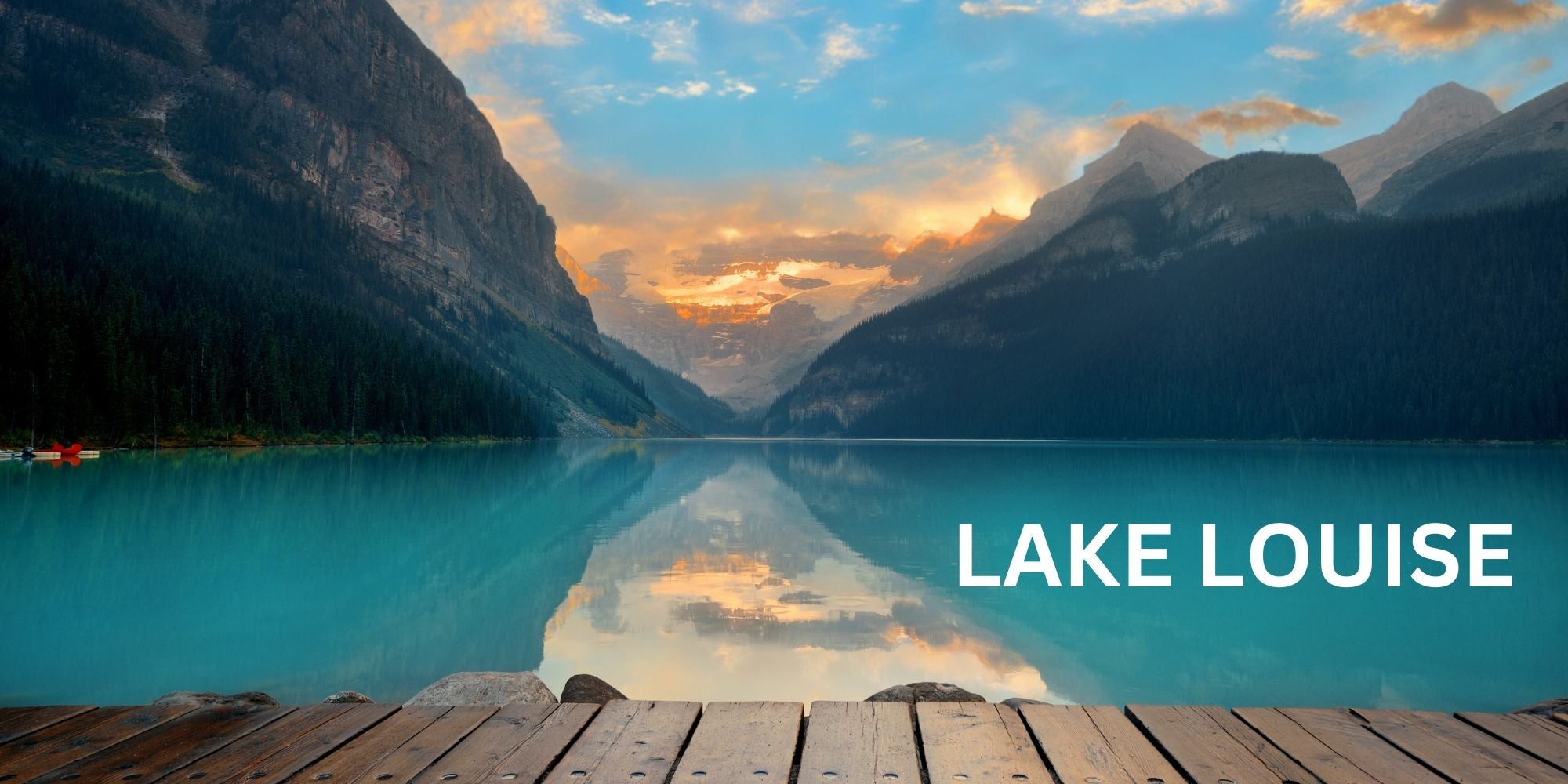
Part of Banff National Park in the Canadian Rockies, Lake Louise is a high elevation destination and ski resort that captivates visitors. With Rocky Mountain elevation experience, we’ll share everything you all about Lake Louise altitude, plus proven steps to avoid altitude sickness.
Lake Louise altitude sits at 5,680 feet on the water, and up to 8,650 feet at the summit of the ski resort.
Lake Louise altitude:
Lake Louise Ski Resort & Summer Gondola altitude:
These altitudes are comparable to Colorado destinations. Denver is similar to Lake Louise at 5,280 feet, and Vail is similar to Lake Louise Ski Resort at 8150 feet.
Depending on where you’re visiting, yes Lake Louise is mostly considered high altitude.
Cornell defines high altitude by anything over 4,000 feet.⁵ This put Lake Louise and the Lake Louise Ski Resort as high altitude.
At an average of 4,537 feet, yes Banff is considered high altitude according to Cornell.⁵
Although this is 1,143 feet lower than Lake Louise, many destinations in Banff including Lake Louise go to altitudes much higher.
The highest elevation in Banff is 11,851 feet, at Mount Forbes.
Mount Forbes is considered to be the fifth highest peak in all of Alberta.
Yes, you can get altitude sickness at Lake Louise.
For comparison, many visitors of our city Denver (at 5,280 ft) experience altitude sickness, which is even lower than Lake Louise’s base altitude (at 5,680 ft).
Altitude sickness can start at 4,000 feet, according to Travel Medicine Consultants.⁶ This puts visitors of Lake Louise at a much higher risk, especially if coming from sea level and furthermore if reaching the Lake Louise ski resort elevation.
Yes, you can get altitude sickness in Canada.
As reviewed, Lake Louise is one of many destinations in Banff Canada that are high in elevation with a risk of altitude sickness. Most of the high altitude locations and ski resorts in Canada are located in either Alberta or British Columbia.
Lake Louise Altitude Sickness arises due to the lower oxygen levels at higher elevations, which can affect even the fittest travelers.
This causes physiological stress on your body including oxidative stress, and can lead to symptoms like headaches and nausea.
Symptoms of Lake Louise altitude sickness may include:
Pay attention to any signs, which could develop within 6-24 upon your arrival to Lake Louise. Keep reading to find our proven steps to help combat the effects of these high altitudes.
The high climb in elevation when visiting the stunning Lake Louise can create a challenge.
As a company based in similar elevations out of Colorado, we’ll share proven steps to help you combat the issues when visiting Lake Louise.
Here’s 5 Steps To Combat Lake Louise Altitude Sickness:

SOURCES:
1. Lake Louise (Alberta) Elevation
https://en.wikipedia.org/wiki/Lake_Louise_(Alberta)
2. Elevation of Lake Louise, Alberta
https://en.wikipedia.org/wiki/Lake_Louise,_Alberta
3. Lake Louise Ski Resort Elevation
https://www.skibig3.com/ski/resorts/lake-louise/
4. Elevation of Lake Louise Ski Resort
https://en.wikipedia.org/wiki/Lake_Louise_Ski_Resort
5. Cornell High Altitude Definition
https://www.law.cornell.edu/definitions/index.php?width=840&height=800&iframe
=true&def_id=2cf9863f85f2f25b6e5e0a2e9dacfe7b&term_occur=5&term_src=Title:
40:Chapter:I:Subchapter:C:Part:86:Subpart:S:86.1810-09
6. High Altitude Illness
https://www.travelsurenyc.com/high-altitude-illness/
7. List of communities in Canada by elevation
https://en.wikipedia.org/wiki/List_of_communities_in_Canada_by_elevation
8. The Importance Of Drinking Water At High Altitude
https://summitoxygen.net/drinking-at-high-altitude/
9. Effects of Alcohol
https://www.ahajournals.org/doi/full/10.1161/01.HYP.29.6.1278#
10. High altitude and oxidative stress
https://pubmed.ncbi.nlm.nih.gov/17482529/
11. Effect of high altitude (7,620 m) exposure on glutathione
https://pubmed.ncbi.nlm.nih.gov/11320641/
12. Oxidative Stress and Diseases Associated with High-Altitude Exposure
https://www.ncbi.nlm.nih.gov/pmc/articles/PMC8868315/
13. Sleep: The Secret Ingredient of Injury Recovery
https://www.orthocarolina.com/media/sleep-the-secret-ingredient-of-injury-recovery
Copy the coupon code & use it at checkout